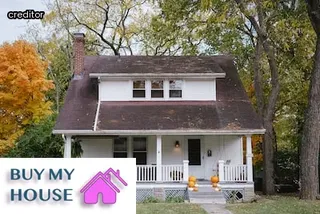Foreclosure is a legal process by which a lender reclaims a property from its borrower if the borrower fails to make timely payments. In Minnesota, foreclosure is handled in court and requires strict adherence to state laws.
Understanding Minnesota foreclosure laws can help borrowers navigate the complexities of this process. The time it takes for a foreclosure to be completed depends on several factors, including whether the home is occupied, what type of loan is involved, and whether the borrower contests the foreclosure.
It’s important to note that Minnesota has specific laws regarding notification procedures and timelines that must be followed. Additionally, lenders must follow certain procedures to offer homeowners an opportunity to pay their debt before the foreclosure sale takes place.
Finally, when it comes to redemption rights in Minnesota, borrowers have up to six months after their home has been sold at a foreclosure sale to regain ownership by paying off all outstanding loans related to the property.

If you are facing foreclosure in Minnesota, it is important to understand the state's laws and procedures as soon as possible. There are steps you can take to avoid foreclosure, such as talking to your lender and discussing options like loan modification or repayment plans.
You may also be able to refinance your mortgage with a different lender or get a forbearance agreement that temporarily reduces or suspends payments for a period of time. If you have other resources, such as retirement savings, using those funds to pay down your debt may prevent foreclosure from happening.
Additionally, if you cannot keep up with your mortgage payments and need immediate assistance, there are non-profit organizations that offer counseling services for homeowners facing financial challenges. Taking advantage of these services can help provide guidance on how best to navigate the foreclosure process and successfully avoid it.
Homeowners facing foreclosure in Minnesota have a number of preforeclosure options available to them. Filing for bankruptcy is one option, as it halts the foreclosure process and allows homeowners time to make arrangements with creditors.
Similarly, homeowners may be able to work out a loan modification or repayment plan with the lender that would prevent foreclosure. Other options include refinancing, negotiating a short sale or deed-in-lieu of foreclosure agreement, or working with a housing counseling agency to explore various programs available from government entities.
It’s important for homeowners to understand their rights and options throughout the process in order to make an informed decision about which route is best for their unique situation.

The foreclosure process in Minnesota can be lengthy and complicated, but if you follow the steps outlined here, you can make it go as smoothly as possible. First, you must research the laws and procedures that govern foreclosures in Minnesota.
These include understanding the state’s foreclosure timeline and its rules on redemption periods. Additionally, it is important to become familiar with the notices that must be sent out to borrowers before a sale occurs.
Once these notices have been sent, lenders can then begin to market their properties for sale. It is important during this stage that lenders use a variety of methods to reach potential buyers, such as public postings and internet listings.
Finally, once buyers are found and an auction occurs, lenders need to ensure all paperwork is properly filled out and filed with the court; this includes preparing an affidavit of sale. By following these steps for a successful foreclosure sale in MN, lenders can complete their process quickly and efficiently.
Mortgage payment deferment programs can be a useful tool for Minnesota homeowners facing foreclosure proceedings. These programs allow borrowers to temporarily postpone their mortgage payments for a specified period of time, providing a cushion during difficult times.
Minnesota law requires lenders to offer payment deferment plans at least once a year and must provide information about these plans upon request. In addition, the state has other specific laws that may affect the duration of a foreclosure process in Minnesota.
For example, some municipalities have enacted ordinances that require lenders to give residents 90 days or more before initiating foreclosure proceedings. Other ordinances may require lenders to provide relocation assistance or alternative housing options if the borrower is unable to stay in their home during the foreclosure process.
Ultimately, understanding all of the legal requirements and procedures in Minnesota can help homeowners make informed decisions about their financial situation and determine whether they are eligible for any mortgage payment deferment programs available in the state.

Foreclosures can be a difficult and confusing process, and unfortunately, this opens the door to potential scams. It is important to understand the risks associated with Minnesota's foreclosure laws and procedures in order to make sure you are not taken advantage of during this stressful time.
In Minnesota, foreclosures must take place through the court system which adds an extra layer of protection for homeowners. However, it is possible for scammers to target vulnerable homeowners during the foreclosure process.
Common scams include offers of loan modification or bail-out services that require upfront fees or payments with no guarantee of any actual help. Homeowners should also be wary of companies that claim they can stop a pending foreclosure if they pay a fee.
The best way to protect yourself from these types of scams is by seeking advice from an experienced attorney who can provide you with reliable information on your rights and options during a foreclosure in Minnesota.
When it comes to foreclosure proceedings, Minnesota homeowners should explore all of their options before entering the process. One alternative to consider is a short sale.
In a short sale, the lender agrees to accept less than the full amount owed on the mortgage in order to avoid foreclosure proceedings. To be eligible for a short sale, borrowers must demonstrate financial hardship and provide documentation to show they are unable to pay the loan in full.
Additionally, lenders must approve of the proposed sale and agree that it is in their best interest. Short sales may help homeowners avoid foreclosure altogether and can help minimize credit damage by preventing negative marks from appearing on credit reports.
It is important for Minnesota homeowners facing foreclosure to research other alternatives like a short sale that may offer a more favorable outcome.

In Minnesota, mortgage reinstatement is the process of bringing a delinquent mortgage loan current by paying off any past-due payments and fees. Mortgage lenders have the right to issue a request for reinstatement when a borrower fails to make their regular monthly payments.
If this happens, the borrower must pay all past due amounts (including late fees and charges) as well as any court costs associated with foreclosure proceedings. In order to be eligible for reinstatement, the borrower must demonstrate they have sufficient funds on hand or are able to obtain them in a timely manner.
Once the lender has accepted payment in full, they must then provide written notice of reinstatement to both the mortgagor and mortgaggee that the foreclosure proceedings have been cancelled and the property will remain under their ownership. Should a homeowner fail to meet the requirement for mortgage reinstatement within the allotted time frame, foreclosure proceedings can resume and ultimately lead to foreclosure of their property.
Deed-in-Lieu of Foreclosure is an alternative to foreclosure that can be used in Minnesota. It allows a homeowner facing foreclosure to voluntarily transfer ownership of their property back to the lender.
The lender then agrees to not proceed with the foreclosure process and consider the loan paid in full. In return, the homeowner is relieved from any further payment obligations and avoids a foreclosure proceeding on their credit report.
The Pros of this option include avoiding a lengthy foreclosure process as well as eliminating some of the associated costs, such as paying for legal fees, court costs, and processing fees. The Cons include potential negative consequences on credit score and possibly having to pay taxes on any amount forgiven by the lender.
Furthermore, lenders are not obligated to accept this option or provide assistance with relocation expenses which may be necessary after defaulting on a mortgage loan.

In Minnesota, a homeowner may be subjected to certain tax implications when facing foreclosure. Generally, any forgiven debt resulting from foreclosure is considered taxable income by the Internal Revenue Service (IRS).
This means that the homeowner must report their forgiven debt as part of their total income for the year in which the foreclosure was finalized. It is important to note that this rule applies to all types of foreclosures, including those initiated by lenders and those initiated by homeowners through a short sale or deed-in-lieu.
Although taxpayers are typically not able to deduct mortgage interest or other costs associated with the foreclosure process, they may be able to take advantage of certain exclusions or deductions under certain circumstances. For example, if a taxpayer has incurred significant legal fees related to their foreclosure proceedings, these could potentially be deductible on their federal taxes.
To determine whether any tax deductions are available in a particular situation, it is best to speak with an experienced tax professional who can provide advice based on each individual’s unique circumstances.
Default judgments are one of the most impactful aspects of foreclosure on a person's credit score in Minnesota. Default judgments occur when the homeowner fails to respond to a lawsuit or answer questions in court, and they can significantly damage credit scores.
A default judgment allows the court to take action without any input from the homeowner. This might include seizing their property and assets, as well as freezing their bank accounts.
Credit scores are often impacted for years after a default judgment is granted, which can make it difficult for homeowners to access mortgage loans or other types of financing in the future. It’s important for Minnesota homeowners facing foreclosure to understand how default judgments work so that they can make informed decisions about their financial situation and avoid long-term damage to their credit score.

Understanding Minnesota's foreclosure laws and procedures is important, especially when it comes to knowing your rights and responsibilities under the Fair Debt Collection Practices Act (FDCPA). In Minnesota, borrowers are protected from certain types of debt collection activities by the FDCPA, as it prohibits harassment or abuse from debt collectors.
This means that lenders must not use threats of violence or other criminal activity, publish a list of consumers who refuse to pay debts, or use obscene language when attempting to collect on a loan. Additionally, lenders must identify themselves when contacting borrowers about their loans and must treat all borrowers with respect.
When it comes to foreclosures in Minnesota, lenders must follow procedures outlined by the FDCPA before they can begin the process. This includes providing written notification of default at least 30 days prior to initiating foreclosure proceedings.
Furthermore, lenders cannot threaten borrowers with immediate foreclosure if they are unable to make payments on time nor can they require them to make payments directly to the lender instead of their servicer. Ultimately, borrowers should familiarize themselves with Minnesota's foreclosure laws and procedures as well as their rights and responsibilities under the FDCPA in order to protect themselves from potential unfair debt collection practices.
Hiring a Minnesota foreclosure lawyer can be an invaluable asset for homeowners in financial distress. A seasoned attorney can help navigate the complexities of Minnesota's foreclosure laws and procedures, making the process easier to understand and helping protect borrowers' rights.
An experienced lawyer can also provide legal advice on options to avoid foreclosure, such as loan modifications or repayment plans. Furthermore, they will represent your interests in court proceedings, ensuring that all paperwork is filled out accurately and that deadlines are met.
Hiring a qualified Minnesota foreclosure lawyer can save time and stress by providing professional legal representation throughout the entire process from start to finish - from filing the appropriate documents to appearing in court if necessary.

If you are facing foreclosure in Minnesota, it is important to understand the state's foreclosure laws and procedures. One of the best strategies for working with your lender during preforeclosures is to act quickly and communicate clearly.
Developing a plan with your lender that works with both parties is key. Most lenders will be willing to work with you if they know you are trying to make payments and stay in your home.
Keep in mind that if you have fallen behind on payments, the lender may require additional security or will add fees to keep your loan up-to-date. It is also important to be aware of all deadlines set forth by the court or lender as failure to comply can result in further complications.
Additionally, make sure you are aware of any foreclosure prevention programs available through Minnesota agencies or government organizations that could help reduce costs or allow more time for repayment. Lastly, if all else fails, it is possible to negotiate a deed-in-lieu of foreclosure agreement which allows borrowers to transfer their property back over to their lender without going through the entire foreclosure process.
In Minnesota, homeowners facing foreclosure have a few protections available to them under state law. Homestead Exemption laws allow for some equity in the home to be exempt from creditors, even after the home is foreclosed.
This exemption allows homeowners to retain some of the proceeds when selling their home, preventing creditors from seizing all of the profits. Additionally, Minnesota has enacted a Foreclosure Prevention Act that requires lenders to work with borrowers to try and resolve defaulted loans before initiating legal action.
The act also provides borrowers with certain rights and protections during the foreclosure process, such as providing notice of pending foreclosure proceedings and allowing a certain amount of time for the borrower to respond or contest the foreclosure. Furthermore, Minnesota allows borrowers to redeem their property after it has been sold at a foreclosure sale by paying off all outstanding balances plus interest and costs associated with the sale within six months of the date of sale.
These options provide homeowners facing foreclosure an opportunity to protect their interests while exploring other potential solutions.

When it comes to foreclosures in Minnesota, homeowners have the option of either contesting or not contesting the foreclosure. An uncontested foreclosure is often seen as a more efficient solution, as it can potentially be completed much faster than a contested foreclosure.
However, there are both pros and cons to each option that homeowners should consider before deciding which route to take. One benefit of an uncontested foreclosure is that the process is generally less expensive due to fewer court fees and legal costs.
Furthermore, because there is no court hearing involved, homeowners will not have to worry about appearing in front of a judge or jury. On the other hand, an uncontested foreclosure can result in a homeowner losing their home without having the chance to make their case in court.
Additionally, an uncontested foreclosure may leave homeowners with little recourse if they believe they’ve been wrongfully foreclosed on by their lender. In contrast, a contested foreclosure gives homeowners the opportunity to present their case in court and potentially prevent the loss of their home.
While this route may take longer and involve higher legal costs, it can also provide a greater sense of security and control over the outcome of their situation.
Foreclosure is a legal process that begins when the homeowner fails to make their mortgage payments and the lender issues a Notice of Default. In Minnesota, the foreclosure process can be complicated and may involve a real estate Sheriff Sale.
At this point, an attorney must file a lawsuit against the borrower in order to initiate foreclosure proceedings. Once filed, the borrower has up to 24 days to respond to the lawsuit before the court orders foreclosure.
If no response is received, then a Writ of Execution will be issued by the court which authorizes the sheriff’s office to initiate the sale of the property at public auction. The entire process can take anywhere from 6 months to 2 years depending on how quickly it moves through the court system and whether or not any appeals are filed.
It's important for homeowners in Minnesota to understand these steps so they can prepare themselves if they ever find themselves facing foreclosure.

When a foreclosure sale has been completed, Minnesota law offers three possible outcomes. The first is redemption, which allows the homeowner to reclaim the home by paying off their debt within six months of the foreclosure sale.
The second outcome is a deed in lieu of foreclosure, where the homeowner and lender agree to forgo the foreclosure process in exchange for the homeowner signing over their deed to the lender, who then becomes the owner of the property. Lastly, after a foreclosure sale, it is also possible that the lender may become an owner-occupant of the property if they choose to do so.
In these instances, lenders typically enter into a lease agreement with existing tenants or make repairs and improvements to either rent out or sell at a future date.
When it comes to dealing with creditors after a foreclosure in Minnesota, negotiation with creditors is key. Negotiating can help borrowers reduce their debt obligations, avoid further damage to their credit scores, and secure more favorable terms on future loans.
To ensure the best possible outcome when negotiating with creditors post-foreclosure, homeowners should always understand their rights under Minnesota law and be prepared to present documentation of their situation. Homeowners should also become familiar with local foreclosure laws and procedures to better understand what kind of timeframe they are dealing with.
It is also important for borrowers to remember that foreclosure proceedings in Minnesota involve multiple stages that can take anywhere from six months to two years or more depending on the circumstances. As such, it is important for borrowers to remain patient while negotiations are underway and maintain a positive attitude throughout the process.
Finally, homeowners should take advantage of any resources available such as legal aid services or counseling programs that can help them navigate the process successfully and negotiate effectively with creditors.

In Minnesota, a repurchase right may be available to a borrower who was the victim of a foreclosure. This right allows the borrower to buy back their home after the foreclosure process has taken place.
Repurchase rights come with certain restrictions and conditions, such as being offered on the same terms and conditions as when the property was sold at auction. In addition, the buyer must pay all costs associated with the repurchase of the home, which can include closing costs and additional fees related to taxes and other liens.
The borrower must also adhere to any deadlines or timeframes set by the lender in order to exercise their repurchase rights. It is important for borrowers to understand that repurchase rights are not guaranteed and are subject to negotiation between them and their lender.
Foreclosure in Minnesota is a process regulated by state law, and the procedures and timeline of a foreclosure largely depend on the type of loan used to purchase the property. Foreclosures in MN fall into two categories: non-judicial foreclosures and judicial foreclosures.
Non-judicial foreclosures are typically quicker than judicial foreclosures, taking approximately three months from start to finish. Judicial foreclosures require court involvement, so they take longer – usually six months or more.
In both cases, the homeowner has an opportunity to bring their mortgage up to date before the foreclosure is finalized. During this time, lenders may choose to work with homeowners on repayment plans or loan modifications.
When a foreclosure is complete, the lender takes possession of the property and it is sold at auction. Understanding how long a foreclosure takes in Minnesota can help homeowners plan for their financial future during this difficult time.

In Minnesota, the statute of limitations for foreclosure is six years. This means that if a homeowner defaults on their mortgage or loan payments and the lender chooses to pursue foreclosure, they must do so within six years from the date of default.
If the lender does not file a foreclosure action within this time period, then they are prohibited from doing so. Foreclosure proceedings in Minnesota must follow strict state regulations and procedures, including filing a complaint with the court and providing notice to the homeowner before any sale can take place.
Homeowners should be aware that it may take several months for a foreclosure to be completed in Minnesota, though most cases are finalized within one year.
In Minnesota, the redemption period for foreclosures is six months from the date of sale. During this time, the homeowner has an opportunity to redeem the property by paying off all past due payments and associated costs, including attorney's fees and court costs.
If the homeowner does not redeem the property within this 6-month period, then title to the property passes to the new owner. It is important for homeowners to understand their rights during this redemption period as there may be other options available that can help them avoid foreclosure.
An experienced attorney can provide guidance in understanding these rights and exploring all potential solutions.
In Minnesota, the sheriff's sale process is the final step in the foreclosure process. The lender will file a Notice of Mortgage Foreclosure Sale with the county sheriff's office.
This notice will include details of the foreclosure such as the amount owed, date and location of sale, and other relevant information. The county sheriff's office will then post this notice at least six weeks before the sale date.
Before posting, they must also publish a legal notice in a local newspaper to give public notice of the sale. On sale day, bidders are able to make offers on the property being auctioned off by the sheriff’s office.
The highest bidder wins. If no bids are received, then ownership reverts back to the lender.
Afterward, all proceeds from the sale are given to lender to cover outstanding debt on mortgage. It is important for anyone involved with a Minnesota foreclosure process to understand their rights throughout this entire process.